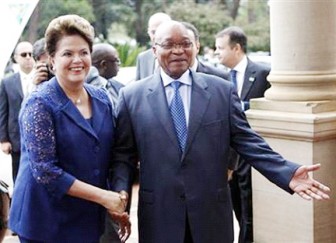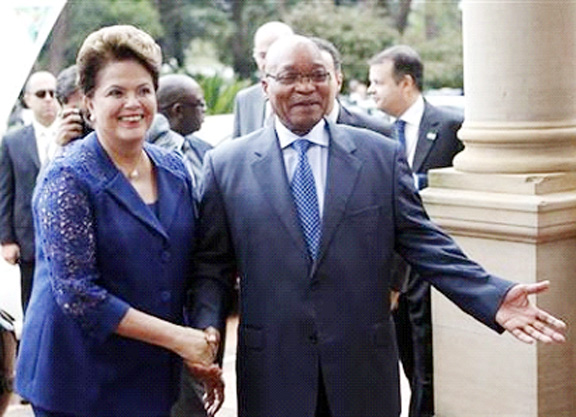(Reuters) – Brazil is launching a top-level drive to expand its economic ties with Africa, a sign of how crises in the rich world are pushing faster-growing emerging economies to trade and invest among themselves.

The new initiative, ordered by President Dilma Rousseff after her three-country trip to Africa last month, comes as nervousness grows in Brazil over the impact in the coming months of Europe’s debt crisis and lurch toward recession.
Europe’s woes, combined with anemic growth in the United States, are already dampening demand for Brazilian exports and will make it more difficult for Brazil to rebound from disappointing growth of around 3-4 percent this year.
In contrast, the eight most promising emerging economies in sub-Saharan Africa, not including South Africa, have grown by an average of 6.6 percent per year over the past decade, according to Deutsche Bank. That is about the same rate as the BRIC group of big emerging countries Brazil, Russia, India and China and faster than emerging Asian economies.
Africa’s total share of Brazil’s trade remains small at just over 5 percent but Brazil has rapidly grown its footprint in the region in recent years as it tries to catch up with China’s burgeoning investments and influence there.
Rousseff ordered the creation of an “Africa Group” this month led by her trade and industry minister, Fernando Pimentel, to refresh its push in the region.
“The crisis has accelerated this strategy,” Pimentel told Reuters. “There will be a dispute for economic space in Africa, and Brazil has to be positioned there.”
Pimentel will lead government officials and business executives this month on a 10-day mission to explore opportunities in the three countries that Rousseff recently visited – Angola, Mozambique, and South Africa.
The new thrust builds on progress made under former President Luiz Inacio Lula da Silva, who visited at least 25 African countries and doubled the number of embassies in the region as he looked to establish Brazil as a leader of the developing world.
Brazil’s overall trade with Africa has quadrupled since 2002 to $20.6 billion last year, compared to its $82 billion trade with the European Union. The fast-growing ties are overwhelmingly based on the exploitation of commodities as Africa taps Brazilian firms’ expertise in mining, oil exploration and tropical agriculture.

